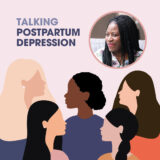Postpartum depression (PPD) is a mental health condition that happens mostly in new mothers. Symptoms of PPD include feelings of sadness, anxiety, and exhaustion that can interfere with a new mother’s ability to care for herself or her baby. Social support is considered a significant intervention in mitigating the symptoms and impact of PPD. There are various types of social support that help, including emotional support, informational support, instrumental support, and companionship support. Social Support in PPD help to reduce symptoms, enhance bonding between the mother and the baby, and imporves health outcomes.

Emotional support from family, friends, and partners helps to offer empathy, concern, affection, and encouragement among new mothers to so that they can feel understood and valued. It can also help first-time mothers reduce feelings of isolation. First-time mothers who have access to Support Groups are at a better place to manage postpartum depression since it offers an opportunity for them to share their experiences and receive support from others who are going through similar challenges. Also, informational support from healthcare professionals can help provide valuable information about PPD, coping strategies, and treatment options. It can also be in the form of parenting Classes and Workshops, which help offer practical advice on newborn care thus reducing anxiety and building confidence.
Moreover, instrumental support such as help to perform household chores, childcare, and other responsibilities can alleviate the burden on new mothers. This helps to give new mothers an opportunity to rest and recover. Financial assistance also falls in this category, which helps to reduce stress related to economic pressures. Companionship support and social activities with friends can help reduce feelings of isolation among new mothers. Virtual support groups and forums can provide a sense of community and accessibility to support at any time.
